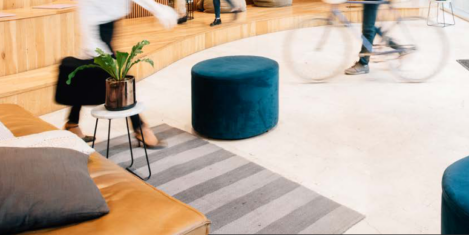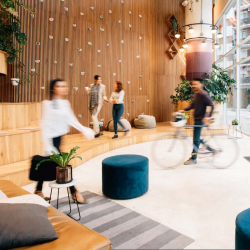To provide the best experiences, we use technologies like cookies to store and/or access device information. Consenting to these technologies will allow us to process data such as browsing behaviour or unique IDs on this site. Not consenting or withdrawing consent, may adversely affect certain features and functions.
The technical storage or access is strictly necessary for the legitimate purpose of enabling the use of a specific service explicitly requested by the subscriber or user, or for the sole purpose of carrying out the transmission of a communication over an electronic communications network.
The technical storage or access is necessary for the legitimate purpose of storing preferences that are not requested by the subscriber or user.
The technical storage or access that is used exclusively for statistical purposes.
The technical storage or access that is used exclusively for anonymous statistical purposes. Without a subpoena, voluntary compliance on the part of your Internet Service Provider, or additional records from a third party, information stored or retrieved for this purpose alone cannot usually be used to identify you.
The technical storage or access is required to create user profiles to send advertising, or to track the user on a website or across several websites for similar marketing purposes.
 The news that Microsoft has introduced a formal hybrid working policy has sparked the usual pointless to and fro on social media about return to office policies, but it would seem for a growing number of firms and their employees, the debate is over. According to new global research from JLL, 72 percent of employees now view attendance requirements in a positive light, but this shift comes with heightened expectations for workplace quality, flexibility and wellbeing. (more…)
The news that Microsoft has introduced a formal hybrid working policy has sparked the usual pointless to and fro on social media about return to office policies, but it would seem for a growing number of firms and their employees, the debate is over. According to new global research from JLL, 72 percent of employees now view attendance requirements in a positive light, but this shift comes with heightened expectations for workplace quality, flexibility and wellbeing. (more…)






















 A new poll suggests that younger people are increasingly seeking a return to office working, as large numbers report that remote work has left them feeling lonely and disconnected. The survey from
A new poll suggests that younger people are increasingly seeking a return to office working, as large numbers report that remote work has left them feeling lonely and disconnected. The survey from 


 A widening gap in productivity between the UK’s public and private sectors is costing the economy around eighty billion pounds annually, according to new analysis from EY. The report,
A widening gap in productivity between the UK’s public and private sectors is costing the economy around eighty billion pounds annually, according to new analysis from EY. The report, 
 Office take-up across the UK has reached its highest level in three years, according to new figures from
Office take-up across the UK has reached its highest level in three years, according to new figures from 







